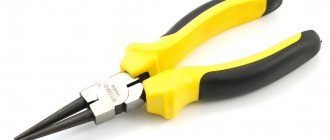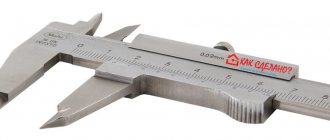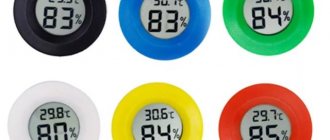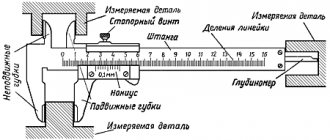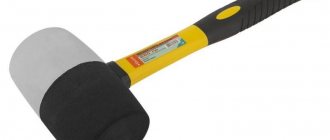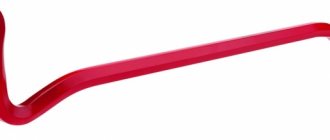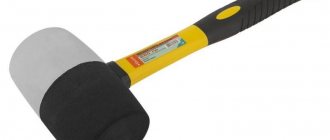GOST 1465-80 (ST SEV 1297-78) Group G24
STATE STANDARD OF THE UNION OF THE USSR FILES Technical conditions Files. Specifications
OKP 39 2910
Validity period from 01.01.81 in part section 2 - from 01.01.84 to 01.01.96* ________________________________ * The validity period was lifted according to Protocol N 5-94 of the Interstate Council for Standardization, Metrology and Certification. (IUS N 11-12, 1994). — Note.
INFORMATION DATA
1. DEVELOPED AND INTRODUCED by the Ministry of Machine Tool and Tool Industry of the USSR DEVELOPERS
D.I. Semenchenko, G.A. Astafieva, N.I. Minaeva, T.A. Lavrenova
2. APPROVED AND ENTERED INTO EFFECT by Resolution of the USSR State Committee on Standards dated January 25, 1980 N 354
3. The inspection period was 1994, the frequency of inspections was 5 years.
4. The standard fully complies with ST SEV 1297-78.
5. INSTEAD GOST 1465-69, GOST 5.227-75, GOST 5.1625-72, GOST 5.2237-74, GOST 5.2309-76
6. REFERENCE REGULATIVE AND TECHNICAL DOCUMENTS
| Designation of the referenced technical document | Item number |
| GOST 8.051-81 | 5.1a |
| GOST 9.014-78 | 3.27 |
| GOST 1435-90 | 3.2 |
| GOST 5210-82 | 3.2 |
| GOST 5950-73 | 3.2 |
| GOST 18088-83 | 3.28; 6.1 |
| GOST 23726-79 | 4.1 |
7. Validity period extended until 01/01/96 by Decree of the USSR State Standard of 03/06/90 N 353
8. REISSUE (May 1992) with Amendments No. 1, 2, 3, 4, approved in August 1982, November 1984, July 1987, March 1990 (IUS 12-82, 2-85 , 12-87, 6-90) This standard applies to general purpose metalworking files. (Changed edition, Amendment No. 3).
BASIC ELEMENTS OF CUT, CUTS AND FILE SIZES
2.1. Files must have a cross (double) cut, the main one at an angle of 65°, the auxiliary one at an angle of 45° to the axis of the file. The location of the main and auxiliary notches of the file teeth must correspond to that shown in Figure 1.
Damn.1
Damn.1
(Changed edition, Amendment No. 3).
2.2. The narrow sides of hacksaw files and one of the narrow sides of flat files should have a single cut at an angle of 65°. The number of notches on the narrow sides should be equal to the number of main notches on the wide sides. The large narrow side of hacksaw files cuts only in a parallel area.
2.3. Round files and semi-circular side semi-circular files can be made with a cut or cut tooth, while the other types can be made with a cut tooth. Round files can have a spiral single cut with an inclination angle of (70±5)°. Round files and the semi-circular side of semi-circular files can have a single cut of numbers 3, 4 and 5. Files with a cut tooth must have a cross cut: the main one at an angle of 70°; auxiliary at an angle of 70°. (Changed edition, Amendment No. 4).
2.4. Files must be made: six numbers of notches - 0; 1; 2; 3; 4; 5; four cutting numbers - 0; 1; 2; 3.
2.5. The number of main notches or cuts per 10 mm length should correspond to Table 1. (Changed edition, Amendment No. 2).
Table 1
| Length of the working part of the files in mm | Numbers of notches or cuts | |||||
| 0 | 1 | 2 | 3 | 4 | 5 | |
| Number of main notches or cuts | Number of main notches | |||||
| 100 | 14 | 20 | 28 | 40 | 56 | |
| 125 | ||||||
| 150 | — | 12 | 17 | 24 | 34 | 48 |
| 200 | 10 | 14 | 20 | 28 | 40 | |
| 250 | 8 | 12 | 17 | 24 | 34 | |
| 300 | 7 | 10 | 14 | 20 | 28 | |
| 350 | ||||||
| 400 | 5 | 6 | 8 | 12 | — | — |
| 450 | ||||||
(Changed edition, Amendment No. 4).
2.6. The number of auxiliary notches or cuts per 10 mm length, depending on the number of main notches or cuts, must correspond to that indicated in Table 2.
table 2
| Number of main notches or cuts | Number of main notches | |||||||||||||
| 5 | 6 | 7 | 8 | 10 | 12 | 14 | 17 | 20 | 24 | 28 | 34 | 40 | 48 | 56 |
| Number of auxiliary notches or cuts | Number of auxiliary notches | |||||||||||||
| 4 | 5 | 6 | 7 | 8 | 10 | 12 | 14 | 17 | 20 | 24 | 28 | 34 | 40 | 48 |
2.7. The file sizes must correspond to Figure 2-10 and Table 3-11:
Damn.2. Flat blunt files
Flat blunt files
_______________ * Size for reference.
Damn.2
Note to drawings 2-6. It is allowed to make file shanks with a symmetrical cross-section of any shape, except round.
Table 3
Dimensions, mm
| Designation | Applicability | no more | Notch numbers | ||||||
| 2820-0001 | 1 | ||||||||
| 2820-0002 | 2 | ||||||||
| 2820-0003 | 100 | 140 | 12,0 | 3,0; 2,5* | 2,0 | 40 | 34 | 2,0 | 3 |
| 2820-0004 | 4 | ||||||||
| 2820-0005 | 15 | 5 | |||||||
| 2820-0011 | 1 | ||||||||
| 2820-0012 | 2 | ||||||||
| 2820-0013 | 150 | 200 | 16,0 | 4,0 | 3,0 | 50 | 50 | 2,5 | 3 |
| 2820-0014 | 4 | ||||||||
| 2820-0015 | 5 | ||||||||
| 2820-0016 | 1 | ||||||||
| 2820-0017 | 2 | ||||||||
| 2820-0018 | 200 | 255 | 21,0; 20,0* | 5,0 | 3,5 | 55 | 66 | 3 | |
| 2820-0019 | 4 | ||||||||
| 2820-0020 | 20 | 3,0 | 5 | ||||||
| 2820-0021 | 1 | ||||||||
| 2820-0022 | 2 | ||||||||
| 2820-0023 | 250 | 310 | 25,0 | 6,5; 6,0* | 4,5 | 60 | 84 | 3 | |
| 2820-0024 | 4 | ||||||||
| 2820-0025 | 5 | ||||||||
| 2820-0026 | 1 | ||||||||
| 2820-0027 | 2 | ||||||||
| 2820-0028 | 300 | 370 | 30,0 | 7,0; 6,5* | 5,5 | 70 | 100 | 3 | |
| 2820-0029 | 4 | ||||||||
| 2820-0030 | 25 | 3,5 | 5 | ||||||
| 2820-0031 | 0 | ||||||||
| 2820-0032 | 1 | ||||||||
| 2820-0033 | 350 | 430 | 35,0 | 7,5 | 6,5 | 80 | 116 | 2 | |
| 2820-0034 | 3 | ||||||||
| 2820-0035 | 0 | ||||||||
| 2820-0036 | 400 | 490 | 39,0 | 90 | 134 | 30 | 1 | ||
| 2820-0037 | 9,0 | 7,5 | 4,0 | 2 | |||||
| 2820-0038 | 3 | ||||||||
| 2820-0039 | 450 | 550 | 44,0 | 100 | 150 | 35 | 0 |
Note to tables 3 and 4. Values marked with * are valid from 01/01/90. An example of a symbol for a flat, blunt-nosed file with a working part length of 300 mm, with a notch N 1:
File 2820-0026 GOST 1465-80
Damn.3. Flat pointed files
Flat pointed files
_________________ * Size for reference.
Damn.3
Table 4
Dimensions, mm
| Designation | Applicability | no more | Notch numbers | |||||||
| 2820-0051 | 1 | |||||||||
| 2820-0052 | 2 | |||||||||
| 2820-0053 | 100 | 140 | 12,0 | 5 | 3,0; 2,5* | 2,0 | 40 | 34 | 2,0 | 3 |
| 2820-0054 | 4 | |||||||||
| 2820-0055 | 15 | 5 | ||||||||
| 2820-0061 | 1 | |||||||||
| 2820-0062 | 2 | |||||||||
| 2820-0063 | 150 | 200 | 16,0 | 8 | 4,0 | 3,0 | 50 | 50 | 2,5 | 3 |
| 2820-0064 | 4 | |||||||||
| 2820-0065 | 5 | |||||||||
| 2820-0066 | 1 | |||||||||
| 2820-0067 | 2 | |||||||||
| 2820-0068 | 200 | 255 | 21,0; 20,0* | 10 | 5,0 | 3,5 | 55 | 66 | 3 | |
| 2820-0069 | 4 | |||||||||
| 2820-0070 | 20 | 3,0 | 5 | |||||||
| 2820-0071 | 1 | |||||||||
| 2820-0072 | 2 | |||||||||
| 2820-0073 | 250 | 310 | 25,0 | 12,5 | 6,5; 6,0* | 4,5 | 60 | 84 | 3 | |
| 2820-0074 | 4 | |||||||||
| 2820-0075 | 5 | |||||||||
| 2820-0076 | 1 | |||||||||
| 2820-0077 | 2 | |||||||||
| 2820-0078 | 300 | 370 | 30,0 | 15,0 | 7,0; 6,5* | 5,5 | 70 | 100 | 3 | |
| 2820-0079 | 4 | |||||||||
| 2820-0080 | 25 | 3,5 | 5 | |||||||
| 2820-0081 | 0 | |||||||||
| 2820-0082 | 350 | 430 | 35,0 | 18,0 | 7,5 | 6,5 | 80 | 116 | 1 | |
| 2820-0083 | 2 | |||||||||
| 2820-0084 | 3 | |||||||||
| 2820-0085 | 0 | |||||||||
| 2820-0086 | 400 | 490 | 39,0 | 20,0 | 90 | 134 | 30 | 1 | ||
| 2820-0087 | 9,0 | 7,5 | 4,0 | 2 | ||||||
| 2820-0088 | 3 | |||||||||
| 2820-0089 | 450 | 550 | 44,0 | 25,0 | 100 | 150 | 35 | 0 |
An example of a symbol for a flat sharp-nosed file with a working part length of 300 mm, with a notch N 1:
File 2820-0076 GOST 1465-80
Damn.4. Square files
Square files
_________________ * Size for reference.
Damn.4
Notes:
1. It is allowed to make file shanks with a section rotated by 45°.
2. It is allowed, by agreement with the consumer, to produce files without a drawn section.
Table 5
Dimensions, mm
| Designation | Applicability | no more | Notch numbers | ||||||
| 2821-0001 | 1 | ||||||||
| 2821-0002 | 2 | ||||||||
| 2821-0003 | 100 | 140 | 4 | 2,0 | 40 | 34 | 2,0 | 3 | |
| 2821-0004 | 4 | ||||||||
| 2821-0005 | 5 | ||||||||
| 2821-0006 | 1 | ||||||||
| 2821-0007 | 15 | 2 | |||||||
| 2821-0008 | 125 | 170 | 5 | 2,5 | 45 | 42 | 3 | ||
| 2821-0009 | 4 | ||||||||
| 2821-0010 | 2,5 | 5 | |||||||
| 2821-0011 | 1 | ||||||||
| 2821-0012 | 2 | ||||||||
| 2821-0013 | 150 | 200 | 6 | 3,0 | 50 | 50 | 3 | ||
| 2821-0014 | 4 | ||||||||
| 2821-0015 | 5 | ||||||||
| 2821-0016 | 1 | ||||||||
| 2821-0017 | 2 | ||||||||
| 2821-0018 | 200 | 255 | 8 | 4,0 | 55 | 66 | 3 | ||
| 2821-0019 | 4 | ||||||||
| 2821-0020 | 20 | 3,0 | 5 | ||||||
| 2821-0021 | 1 | ||||||||
| 2821-0022 | 2 | ||||||||
| 2821-0023 | 250 | 310 | 10 | 5,0 | 60 | 84 | 3 | ||
| 2821-0024 | 4 | ||||||||
| 2821-0025 | 5 | ||||||||
| 2821-0026 | 1 | ||||||||
| 2821-0027 | 2 | ||||||||
| 2821-0028 | 300 | 370 | 12 | 6,0 | 70 | 100 | 3 | ||
| 2821-0029 | 4 | ||||||||
| 2821-0030 | 25 | 3,5 | 5 | ||||||
| 2821-0031 | 0 | ||||||||
| 2821-0032 | 1 | ||||||||
| 2821-0033 | 350 | 430 | 15* | 7,0 | 80 | 116 | 2 | ||
| 2821-0034 | 3 | ||||||||
| 2321-0035** | 0 | ||||||||
| 2821-0036 | 1 | ||||||||
| 2821-0037 | 400 | 490 | 18* | 8,0 | 90 | 134 | 30 | 4,0 | 2 |
| 2821-0038 | 3 |
_________________ * It is allowed to produce files with a square side of 14 mm and 16 mm, respectively. ** Corresponds to the original. — Note. An example of a symbol for a square file with a working part length of 300 mm, with a notch N 1:
File 2821-0026 GOST 1465-80
Damn.5. Triangular files
Triangular files
________________ * Size for reference.
Damn.5
Notes:
1. The size is given without taking into account chamfers.
2. It is allowed, by agreement with the consumer, to produce files without a drawn section.
Table 6
Dimensions, mm
| Designation | Applicability | no more | Notch numbers | ||||||
| 2821-0051 | 1 | ||||||||
| 2821-0052 | 2 | ||||||||
| 2821-0053 | 100 | 140 | 8 | 4,0 | 40 | 34 | 2,0 | 3 | |
| 2821-0054 | 4 | ||||||||
| 2821-0055 | 5 | ||||||||
| 2821-0056 | 1 | ||||||||
| 2821-0057 | 15 | 2 | |||||||
| 2821-0058 | 125 | 170 | 10 | 5,0 | 45 | 42 | 3 | ||
| 2821-0059 | 4 | ||||||||
| 2821-0060 | 2,5 | 5 | |||||||
| 2821-0061 | 1 | ||||||||
| 2821-0062 | 2 | ||||||||
| 2821-0063 | 150 | 200 | 11* | 5,5 | 50 | 50 | 3 | ||
| 2821-0064 | 4 | ||||||||
| 2821-0065 | 5 | ||||||||
| 2821-0066 | 1 | ||||||||
| 2821-0067 | 2 | ||||||||
| 2821-0068 | 200 | 255 | 15 | 7,5 | 55 | 66 | 3 | ||
| 2821-0069 | 4 | ||||||||
| 2821-0070 | 3,0 | 5 | |||||||
| 2821-0071 | 20 | 1 | |||||||
| 2821-0072 | 2 | ||||||||
| 2821-0073 | 250 | 310 | 18,0; 17,5** | 9,0 | 60 | 84 | 3 | ||
| 2821-0074 | 4 | ||||||||
| 2821-0075 | 5 | ||||||||
| 2821-0076 | 1 | ||||||||
| 2821-0077 | 21,0; 20,0** | 2 | |||||||
| 2821-0078 | 300 | 370 | 10,5 | 70 | 100 | 3 | |||
| 2821-0079 | 21 | 4 | |||||||
| 2821-0080 | 25 | 3,5 | 5 | ||||||
| 2821-0081 | 0 | ||||||||
| 2821-0082 | 350 | 430 | 24 | 12,0 | 80 | 116 | 1 | ||
| 2821-0083 | 2 | ||||||||
| 2821-0084 | 3 | ||||||||
| 2821-0085 | 0 | ||||||||
| 2821-0086 | 400 | 490 | 27 | 13,5 | 90 | 134 | 30 | 4,0 | 1 |
| 2821-0087 | 2 | ||||||||
| 2821-0088 | 3 |
_________________ * It is allowed to produce files with a width of 12 mm. ** Valid from 01/01/90. An example of a symbol for a triangular file with a working part length of 300 mm, with a notch N 1:
File 2821-0076 GOST 1465-80
Damn.6. Diamond files
Diamond files
_______________ * Size for reference.
Damn.6
Table 7
Dimensions, mm
| Designation | Applicability | no more | Notch numbers | ||||
| 2821-0101 | 2 | ||||||
| 2821-0102 | 100 | 140 | 12,5 | 3,25 | 40 | 2,0 | 3 |
| 2821-0103 | 4 | ||||||
| 2821-0104 | 15 | 5 | |||||
| 2821-0109 | 2 | ||||||
| 2821-0110 | 150 | 200 | 19,0 | 5,00 | 50 | 2,5 | 3 |
| 2821-0111 | 4 | ||||||
| 2821-0112 | 5 | ||||||
| 2821-0113 | 2 | ||||||
| 2821-0114 | 200 | 255 | 25,0 | 6,50 | 55 | 3 | |
| 2821-0115 | 4 | ||||||
| 2821-0116 | 20 | 3,0 | 5 | ||||
| 2821-0117 | 2 | ||||||
| 2821-0118 | 250 | 310 | 32,0 | 8,00 | 60 | 3 | |
| 2821-0119 | 4 | ||||||
| 2821-0120 | 5 |
An example of a symbol for a rhombic file with a working part length of 200 mm, with a notch N 2:
File 2821-0113 GOST 1465-80
Damn.7. Hacksaw files
Hacksaw files
_________________ * Size for reference.
Damn.7
Note. It is allowed to make file shanks with a symmetrical cross-section of any shape, except round.
Table 8
Dimensions, mm
| Designation | Applicability | no more | Notch numbers | ||||||||
| 2821-0131 | 2 | ||||||||||
| 2821-0132 | 100 | 140 | 13 | 3,0 | 3,0 | 0,8 | 40 | 34 | 2,0 | 3 | |
| 2821-0133 | 4 | ||||||||||
| 2821-0134 | 15 | 5 | |||||||||
| 2821-0139 | 2 | ||||||||||
| 2821-0140 | 3 | ||||||||||
| 2821-0141 | 150 | 200 | 18 | 4,0 | 4,0 | 0,9 | 50 | 50 | 2,5 | 4 | |
| 2821-0142 | 5 | ||||||||||
| 2821-0143 | 2 | ||||||||||
| 2821-0144 | 3 | ||||||||||
| 2821-0145 | 200 | 255 | 22 | 5,0 | 5,0 | 1,2 | 55 | 66 | 4 | ||
| 2821-0146 | 20 | 3,0 | 5 | ||||||||
| 2821-0147 | 2 | ||||||||||
| 2821-0148 | 3 | ||||||||||
| 2821-0149 | 250 | 310 | 27 | 6,5 | 6,5 | 1,8 | 60 | 84 | 2,0* | 4 | |
| 2821-0150 | 5 | ||||||||||
| 2821-0151 | 2 | ||||||||||
| 2821-0152 | 300 | 370 | 33 | 7,5 | 7,5 | 1,8 | 70 | 100 | 25 | 3,5 | 3 |
| 2821-0153 | 4 | ||||||||||
| 2821-0154 | 5 |
__________________ * Corresponds to the original. — Note. An example of a symbol for a hacksaw file with a working part length of 200 mm, with a notch N 2:
File 2821-0143 GOST 1465-80
Damn.8. Round files with serrated teeth
Round files with serrated teeth
_________________ * Size for reference
Damn.8
Note to drawings 8-10. It is allowed to make file shanks with a symmetrical cross-section of any shape, except round. Note. It is allowed, by agreement with the consumer, to produce files without a drawn section.
Table 9
Dimensions, mm
| Designation | Applicability | no more | Notch numbers | ||||||
| 2822-0001 | 1 | ||||||||
| 2822-0002 | 2 | ||||||||
| 2822-0003 | 100 | 140 | 4 | 2,0 | 40 | 34 | 2,0 | 3 | |
| 8222-0004*** | 4 | ||||||||
| 2822-0005 | 5 | ||||||||
| 2822-0006 | 1 | ||||||||
| 2822-0007 | 15 | 2 | |||||||
| 2822-0008 | 125 | 170 | 5 | 2,5 | 45 | 42 | 3 | ||
| 2822-0009 | 4 | ||||||||
| 2822-0010 | 2,5 | 5 | |||||||
| 2822-0011 | 1 | ||||||||
| 8222-0012*** | 2 | ||||||||
| 2822-0013 | 150 | 200 | 6 | 3,0 | 50 | 50 | 3 | ||
| 2822-0014 | 4 | ||||||||
| 2822-0015 | 5 | ||||||||
| 2822-0016 | 1 | ||||||||
| 2822-0017 | 2 | ||||||||
| 2822-0018 | 200 | 255 | 8,0; 7,5** | 4,0 | 55 | 66 | 3 | ||
| 2822-0019 | 4 | ||||||||
| 2822-0020 | 5 | ||||||||
| 2822-0021 | 20 | 3,0 | 1 | ||||||
| 2822-0022 | 2 | ||||||||
| 2822-0023 | 250 | 310 | 10,0; 9,5** | 5,0 | 60 | 84 | 3 | ||
| 2822-0024 | 4 | ||||||||
| 2822-0025 | 5 | ||||||||
| 2822-0026 | 1 | ||||||||
| 2822-0027 | 2 | ||||||||
| 2822-0028 | 300 | 370 | 12 | 6,0 | 70 | 100 | 3 | ||
| 2822-0029 | 4 | ||||||||
| 2822-0030 | 25 | 3,5 | 5 | ||||||
| 2822-0031 | 0 | ||||||||
| 2822-0032 | 1 | ||||||||
| 2822-0033 | 350 | 430 | 15* | 7,0 | 80 | 116 | 2 | ||
| 2822-0034 | 3 | ||||||||
| 2822-0035 | 0 | ||||||||
| 2822-0036 | 400 | 490 | 18* | 8,0 | 90 | 134 | 30 | 4,0 | 1 |
| 2822-0037 | 2 | ||||||||
| 2822-0038 | 3 |
_________________ * It is allowed to produce files with diameters of 14 mm and 16 mm, respectively. ** Valid from 01/01/90. *** Corresponds to the original. — Note. An example of a symbol for a round file with a working part length of 300 mm, with a notch N 1:
File 2822-0026 GOST 1465-80
Damn.9. Round files with cut teeth
Round files with cut teeth
_________________ * Size for reference.
Damn.9
Note. It is allowed, by agreement with the consumer, to produce files without a drawn section.
Table 10
Dimensions, mm
| Designation | Applicability | no more | Notch numbers | ||||||
| 2822-0051 | 1 | ||||||||
| 2822-0052 | 100 | 140 | 4 | 2,5 | 40 | 34 | 2,0 | 2 | |
| 2822-0053 | 3 | ||||||||
| 2822-0054 | 1 | ||||||||
| 2822-0055 | 125 | 170 | 5 | 3,0 | 45 | 42 | 15 | 2 | |
| 2822-0056 | 2,5 | 3 | |||||||
| 2822-0057 | 1 | ||||||||
| 2822-0058 | 150 | 200 | 6 | 4,0 | 50 | 50 | 2 | ||
| 2822-0059 | 3 | ||||||||
| 2822-0060 | 1 | ||||||||
| 2822-0061 | 200 | 255 | 8,0; 7,5** | 5,0 | 55 | 66 | 2 | ||
| 2822-0062 | 3 | ||||||||
| 2822-0063 | 20 | 3,0 | 1 | ||||||
| 2822-0064 | 250 | 310 | 10,0; 9,5** | 6,5 | 60 | 84 | 2 | ||
| 2822-0065 | 3 | ||||||||
| 2822-0066 | 300 | 370 | 12 | 8,0 | 70 | 100 | 25 | 3,5 | 1 |
| 2822-0067 | 2 | ||||||||
| 2822-0068 | 3 | ||||||||
| 2822-0069 | 0 | ||||||||
| 2822-0070 | 350 | 430 | 15 | 10,0 | 80 | 116 | 1 | ||
| 2822-0071 | 15* | 2 | |||||||
| 2822-0072 | 3 | ||||||||
| 2822-0073 | 30 | 0 | |||||||
| 2822-0074 | 400 | 490 | 18* | 12,0 | 90 | 134 | 4,0 | 1 | |
| 2822-0075 | 2 | ||||||||
| 2822-0076 | 3 |
_________________ * It is allowed to produce files with diameters of 14 mm and 16 mm, respectively ** Valid from 01/01/90. An example of a symbol for a round file with a working length of 300 mm, with cutting N 1:
File 2822-0066 GOST 1465-80
Damn 10. Half round files
Half round files
_________________ * Size for reference
Damn.10
Table 11
Dimensions, mm
| Designation | Applicability | no more | Notch numbers | ||||||||
| 2822-0101 | 1 | ||||||||||
| 2822-0103 | 2 | ||||||||||
| 2822-0105 | 100 | 140 | 11,0; 10,5* | 5,0 | 4,0; 3,0* | 2,0 | 40 | 34 | 15 | 2,0 | 3 |
| 2822-0107 | 4 | ||||||||||
| 2822-0108 | 5 | ||||||||||
| 2822-0117 | 1 | ||||||||||
| 2822-0119 | 2 | ||||||||||
| 2822-0121 | 150 | 200 | 16,0 | 8,0 | 4,5 | 3,0 | 50 | 50 | 15 | 2,5 | 3 |
| 2822-0123 | 4 | ||||||||||
| 2822-0124 | 5 | ||||||||||
| 2822-0125 | 1 | ||||||||||
| 2822-0127 | 2 | ||||||||||
| 2822-0129 | 200 | 255 | 21,0; 20,0* | 10,0 | 6,0 | 3,5 | 55 | 66 | 3 | ||
| 2822-0131 | 4 | ||||||||||
| 2822-0132 | 20 | 3,0 | 5 | ||||||||
| 2822-0133 | 1 | ||||||||||
| 2882-0135 | 2 | ||||||||||
| 2822-0137 | 250 | 310 | 25,0 | 12,5 | 7,0 | 4,0 | 60 | 84 | 3 | ||
| 2822-0139 | 4 | ||||||||||
| 2822-0140 | 5 | ||||||||||
| 2822-0141 | 300 | 370 | 30,0 | 15,0 | 8,5 | 5,0 | 70 | 100 | 1 | ||
| 2822-0143 | 2 | ||||||||||
| 2822-0145 | 3 | ||||||||||
| 2822-0147 | 4 | ||||||||||
| 2822-0148 | 25 | 3,5 | 5 | ||||||||
| 2822-0149 | 0 | ||||||||||
| 2822-0151 | 350 | 430 | 35,0 | 17,5 | 10,0 | 6,0 | 80 | 116 | 1 | ||
| 2822-0153 | 2 | ||||||||||
| 2822-0155 | 3 | ||||||||||
| 2822-0157 | 0 | ||||||||||
| 2822-0159 | 400 | 490 | 40,0 | 20,0 | 11,0 | 6,5 | 90 | 134 | 30 | 4,0 | 1 |
| 2822-0161 | 2 | ||||||||||
| 2822-0163 | 3 |
_________________ * Valid from 01/01/90. An example of a symbol for a semicircular file with a working part length of 300 mm, with a notch N 1:
File 2822-0141 GOST 1465-80
Note. For files of design 02 and 03, the design index is added to the designation - 02 and 03. (Changed edition, Amendment No. 1, 3).
TECHNICAL REQUIREMENTS
3.1. Files must be manufactured in accordance with the requirements of this standard according to working drawings approved in the prescribed manner.
3.2. Files must be made of tool carbon steel grades U13 or U13A in accordance with GOST 1435-90 or steel 13X in accordance with GOST 5950-73, profiles 1-7 in accordance with GOST 5210-82.
3.3. The hardness and sharpness of the file teeth must ensure their adhesion to the control plate, made of steel of the same grade as the file of three hardness versions: 58, 60, 62. Note. The purpose of files by hardness is indicated in the reference appendix.
3.2, 3.3. (Changed edition, Amendment No. 4).
3.4, 3.5. (Excluded, Amendment No. 3).
3.6. The hardness of the file shank in the area from the end to the middle of its length should not exceed 36.5.
3.7 The ratio of tooth height to the normal pitch of the main notch or cutting must be at least 0.5.
3.8. The front angle of the file tooth, measured in a section (along the top of the tooth), perpendicular to the direction of the main notch or cut and located in the middle of the length of the working part of the file, can be negative, but it should not exceed minus 12° for files with notch N 0, 1 , 2 and minus 15° for files with cuts N 3, 4, 5 and files with cut teeth.
3.9. Maximum deviations of file dimensions should not exceed, mm:
length of working part:
| for files up to 150 mm long | ±4 |
| St. 150 to 300 mm | ±6 |
| St. 300 mm | ±8 |
| width of flat, hacksaw, semicircular, sides of triangular and square, diameter of round and large diagonal of rhombic | ±1,6; ±1,0* |
thicknesses for flat, hacksaw, semicircular, small diagonal for rhombic:
| for files up to 150 mm long | ±0,8; ±0,5* |
| St. 150 mm | ±1,6; ±1,0* |
| difference in width of two adjacent sides at a large angle of a rhombic file | 1. |
The deviation of the side of triangular files up to 200 mm long is allowed - 2.2 mm, st. 200 mm - 2.6 mm. Note. Values marked with * are valid from 01/01/94. (Changed edition, Amendment No. 4).
3.10. The maximum deviations of the inclination angles of the notch or cutting should not exceed ±2°. Maximum deviations in the number of main notches or cuts per 10 mm of file length should not exceed:
| for files with serrations or threads | |
| N 0, 1, 2, 3 | plus 1 notch or slice |
| for files with cuts N 4 and 5 | plus 2 notches. |
3.9, 3.10. (Changed edition, Amendment No. 3).
3.11. (Deleted, Amendment No. 3).
3.12. Deviation from straightness should not exceed: on the unstretched section of the working part of the file 0.2 mm per 100 mm of length; on the narrow side for flat and hacksaw files or along the edge for semicircular and rhombic files 0.3 mm per 100 mm length.
3.13. The distance of the end of the file nose from the plane of the unextracted part of the corresponding side of the file must be at least, mm:
| for flat files | |
| working part length 100 mm | 0,10 |
| the length of the working part of St. 100 to 350 mm | 0,25 |
| the length of the working part of St. 350 mm | 0,5 |
| for semicircular files | |
| working part length 100 mm | 0,25 |
| for semicircular files | |
| the length of the working part of St. 100 to 300 mm and round, square, triangular files | |
| working part length from 100 to 300 mm | 0,5 |
| for files (except flat ones) the length of the working part is St. 300 mm | 1,0 |
(Changed edition, Amendment No. 4).
3.14. The edges of flat, square, triangular, semicircular and rhombic files are allowed to have a chamfer, the dimensions of which should not exceed those given in Table 12.
Table 12
mm
| Length of working part of files | Chamfer dimensions for notches or cutting numbers | ||
| 0 and 1 | 2 and 3 | 4 and 5 | |
| 100-450 | 0,4 | 0,20 | 0,15 |
(Changed edition, Amendment No. 2, 4).
3.15. Deviations from the symmetry of the shank axis relative to the file axis should not exceed, mm:
| for files up to 300 mm long | 0,8 |
| for files with length St. 300 mm | 1 |
3.16. On round files and on the convex side of semicircular files, the notches should overlap one another.
3.17. There should be no cracks on the file surfaces. There should be no burrs, rough edges or traces of corrosion on the working surface of the file. The end of the file tip must be protected and free of chips. Sharp edges on the shank must be dulled. (Changed edition, Amendment No. 2, 3, 4).
3.18. The difference between the largest and smallest values of the axial pitch of the main or auxiliary notch on any section of the side in question should not exceed 10% of the nominal value of the axial pitch.
3.19. The displacement of the shoulders relative to each other along the file axis should not exceed 1 mm.
3.20. Files are made without handles. It is allowed, by agreement with the consumer, to produce files with handles. File handles must be manufactured according to the manufacturer's drawings.
3.21. The reliability of files made of carbon steel is determined by a full 95% service life equal to 10,000 working strokes on one side under the test conditions specified in Section 5.
3.22. The criterion for the limiting state of files is the loss of productivity, expressed by the rate of metal removal per 10,000 working strokes, less than that indicated in Table 15. The correction factor for the metal removal rate for files made of 13X steel is 1.4 relative to that indicated in Table 15.
3.23. The manufacturer's trademark and steel grade for 13X steel files must be clearly marked on the uncut or uncut portion of each file or on the shank near the shoulders.
3.24. When packing, files must be separated from one another.
3.25. The hardness of the files must be indicated on the consumer packaging.
3.21-3.25. (Changed edition, Amendment No. 4).
3.26. (Deleted, Amendment No. 4).
3.27. The internal packaging of files is VU-1 according to GOST 9.014-78.
3.28. Other requirements for packaging and labeling of transport and consumer packaging are in accordance with GOST 18088-83.
3.21-3.28. (Introduced additionally, Amendment No. 3).
What you need to know about scrapers?
Craftsmen, for whom the use of a scraper is determined by their professional activities, purchase different types of sets of this tool, where each unit is used for a specific purpose.
For periodic use at home, it is more profitable and cheaper to purchase one composite model with several replaceable cutting inserts of the configurations required to solve certain problems.
In some cases, for ease of operation, a longer scraper handle is required; for these purposes, special extension holders can be found on sale.
CONTROL AND TEST METHODS
5.1. The appearance of files is checked visually. (Changed edition, Amendment No. 3).
5.1a. When monitoring the parameters of files, control methods and means should be used, the error of which should not be more than: when measuring linear dimensions - the values specified in GOST 8.051-81; when measuring angles - 35% of the tolerance value for the angle being tested; when monitoring the shape and location of surfaces - 25% of the tolerance value for the parameter being tested.
5.1b. The cutting angles are measured on the cylindrical part.
5.1c. The width and thickness of cut files are measured on the uncut section of the working part, cut files - on the cut (working) part (except for the toe).
5.1g. Testing of files for performance is carried out by adhesion to a control plate with hardness according to clause 3.3. When testing, the plate should be passed with its wide side along the teeth of the file in the direction from the toe to the shank; the plate should engage the teeth without any signs of chipping on the top. Adhesion to the control plate and the quality of the notch on the size and at a distance of up to 10 mm from the end of the toe are not controlled.
5.1d. Reliability tests of files should be carried out on TF 18-6 type machines or similar machines.
5.1c, 5.1d, 5.1d. (Changed edition, Amendment No. 4).
5.1a-5.1d. (Introduced additionally, Amendment No. 3).
5.2. When testing for performance (adhesion to the control plate) and reliability, files are checked on the following sides: flat and hacksaw files - on two wide sides; square and rhombic - on four sides; triangular - on three sides; round - on two diametrically opposite sides; semicircular - on the flat and semicircular sides. (Changed edition, Amendment No. 3, 4).
5.3. Files must be tested on samples (bars) made of carbon steel grade U8 according to GOST 1435-74, hardness 170...187 HB. Before testing, all sides of the sample must be processed. The roughness of the processed surface of the sample should not be more than 20 microns.
(Changed edition, Amendment No. 3).
5.4. When testing files, the wide sides of the sample to be filed must be horizontal, and the axis of the sample must be perpendicular to the axis of the file.
5.5. When testing round files and the convex sides of semicircular files, a cut with a curvature corresponding to the curvature of the surface of the tested section of the file must be made at the end of the sample being filed.
5.6. The cut or cut of the file being tested must be dry.
5.7. When testing for reliability, each side of the file should be tested for 10,000 strokes. The number of working strokes of the testing machine per minute should be 55-60. The tested section of the working part of the file should begin at a distance of 10-15 mm from the unnotched or uncut section. The test result should be considered satisfactory if the volume of metal removed for each side of the file is not less than the removal rate according to Table 15.
Table 15*
_________________ * Tables 13, 14 excluded
| Working stroke length when testing files, mm | Test conditions | ||||||||
| Number of notches per 10 mm file length | 50 | 75 | 100 | Specific pressure, kgf/cm | Section of the sample to be cut, mm | Pressing load, kgf | Notch numbers | Length of the working part of the files, mm | |
| Removal rate per side, g, not less | |||||||||
| Flat, triangular, hacksaw and flat side half round files | |||||||||
| 5 | 0 | 450 | |||||||
| 132 | 0 | 400 | |||||||
| 5,0 | 12,50 | 0 | 350 | ||||||
| 6 | 115 | 1 | 400 | ||||||
| 1 | 350 | ||||||||
| 7 | — | 102 | 10x25 | 1 | 300 | ||||
| 1 | 250 | ||||||||
| 8 | — | 85 | 4,5 | 11,25 | 2 | 400 | |||
| 2 | 350 | ||||||||
| 10 | 72 | 1 | 200 | ||||||
| 2 | 300 | ||||||||
| — | 1 | 150 | |||||||
| 12 | 26 | 10x18 | 2 | 250 | |||||
| 3 | 400 | ||||||||
| 3 | 350 | ||||||||
| 14 | — | 9x20 | 1 | 100 | |||||
| 14 | 1 | 125 | |||||||
| 23 | 2 | 200 | |||||||
| — | — | 4,0 | 10x18 | 7,2 | 3 | 300 | |||
| 17 | 18 | 2 | 150 | ||||||
| 3 | 250 | ||||||||
| 10 | — | 9x20 | 2 | 100 | |||||
| 20 | 2 | 125 | |||||||
| 15,5 | 3 | 200 | |||||||
| — | 10x18 | 4 | 300 | ||||||
| 24 | 14,5 | 3 | 150 | ||||||
| 4 | 250 | ||||||||
| 4,0 | 9x10 | 3 | 100 | ||||||
| 28 | 3 | 125 | |||||||
| 4,5 | 3,5 | 4 | 200 | ||||||
| 10x10 | 5 | 300 | |||||||
| 34 | 4,0 | 4 | 150 | ||||||
| — | — | 3,5 | 5 | 250 | |||||
| 4 | 100 | ||||||||
| 40 | 1,9 | 4 | 125 | ||||||
| 5x10 | 1,75 | 5 | 200 | ||||||
| 48 | 1,5 | 5 | 150 | ||||||
| 56 | 1,3 | 5 | 100 | ||||||
| 5 | 125 | ||||||||
| Square and diamond files | |||||||||
| 5 | 132 | 0 | 350 | ||||||
| 5 | 12,5 | 0 | 400 | ||||||
| 6 | 115 | 1 | 350 | ||||||
| 10x25 | 1 | 400 | |||||||
| 7 | — | 102 | 1 | 300 | |||||
| — | 11,25 | 1 | 250 | ||||||
| 8 | 85 | 4,5 | 2 | 350 | |||||
| 2 | 400 | ||||||||
| 10 | 23 | 5x10 | 2,25 | 1 | 200 | ||||
| 75 | 10x25 | 11,25 | 2 | 300 | |||||
| 14,5 | 5x10 | 2 | 1 | 150 | |||||
| 12 | — | 4 | 2 | 250 | |||||
| 26 | 10x18 | 7,2 | 3 | 350 | |||||
| 3 | 400 | ||||||||
| Square and diamond files | |||||||||
| 7 | — | 4x12 | 1 | 100 | |||||
| 14 | 12,5 | 5x10 | 2 | 1 | 125 | ||||
| 2 | 200 | ||||||||
| — | 21 | 10x18 | 3 | 300 | |||||
| 17 | 10 | 5x10 | 7,2 | 2 | 150 | ||||
| 18 | 4 | 10x18 | 2 | 3 | 250 | ||||
| 5 | — | 4x12 | 7,2 | 2 | 100 | ||||
| 20 | 10 | 5x10 | 2 | 2 | 125 | ||||
| 3 | 200 | ||||||||
| — | 15,5 | 10x18 | 7,2 | 4 | 300 | ||||
| 24 | 7,2 | 5x10 | 2 | 3 | 150 | ||||
| 14,5 | 10x18 | 7,2 | 4 | 250 | |||||
| 4x12 | 3 | 100 | |||||||
| — | 3 | 125 | |||||||
| 28 | 2,7 | 5x10 | 1,75 | 4 | 200 | ||||
| 5 | 300 | ||||||||
| 4 | 150 | ||||||||
| 34 | 2,5 | 10x10 | 3,5 | 5 | 250 | ||||
| 1,8 | — | 3,5 | 4x12 | 4 | 100 | ||||
| 40 | 1,9 | 4 | 125 | ||||||
| 5x10 | 5 | 200 | |||||||
| 48 | 1,5 | 1,75 | 5 | 150 | |||||
| 56 | 1,2 | 4x12 | 5 | 100 | |||||
| 5x10 | 5 | 125 | |||||||
| Half round side of half round files | |||||||||
| 5 | 120 | 5 | 10x25 | 12,5 | 0 | 350 | |||
| 0 | 400 | ||||||||
| 6 | 96 | 1 | 350 | ||||||
| 1 | 400 | ||||||||
| 7 | — | 72 | 4,5 | 11,25 | 1 | 300 | |||
| 8 | — | 54 | 1 | 250 | |||||
| 2 | 350 | ||||||||
| 2 | 400 | ||||||||
| 10 | 36 | 1 | 200 | ||||||
| 2 | 300 | ||||||||
| 7,2 | 1 | 150 | |||||||
| 12 | 21 | 10x18 | 2 | 250 | |||||
| 3 | 350 | ||||||||
| 3 | 400 | ||||||||
| 13,2 | — | 9x20 | 1 | 100 | |||||
| 14 | 1 | 125 | |||||||
| 20 | 2 | 200 | |||||||
| — | — | 4 | 10x18 | 3 | 300 | ||||
| 17 | 16,8 | 2 | 150 | ||||||
| 3 | 250 | ||||||||
| 11 | — | 9x20 | 2 | 100 | |||||
| 20 | 2 | 125 | |||||||
| 16 | 3 | 200 | |||||||
| — | 10x18 | 4 | 300 | ||||||
| 24 | 14 | 3 | 150 | ||||||
| 4 | 250 | ||||||||
| 4 | 9x10 | 3 | 100 | ||||||
| 28 | 3 | 125 | |||||||
| 4,5 | 4 | 200 | |||||||
| 10x10 | 3,5 | 5 | 300 | ||||||
| 34 | 4 | 4 | 150 | ||||||
| — | — | 3,5 | 5 | 250 | |||||
| 4 | 100 | ||||||||
| 40 | 2 | 4 | 125 | ||||||
| 5x10 | 1,75 | 5 | 200 | ||||||
| 48 | 1,6 | 5 | 150 | ||||||
| 56 | 1,3 | 5 | 100 | ||||||
| 5 | 125 | ||||||||
| Round files | |||||||||
| 5 | 130 | 0 | 350 | ||||||
| 5 | 12,5 | 0 | 400 | ||||||
| 6 | 113 | 1 | 350 | ||||||
| 1 | 400 | ||||||||
| 7 | — | 90 | 10x25 | 1 | 300 | ||||
| 1 | 250 | ||||||||
| 8 | — | 65 | 4,5 | 11,25 | 2 | 350 | |||
| 2 | 400 | ||||||||
| 10 | 62 | 2 | 300 | ||||||
| 30 | 5x10 | 2,25 | 1 | 200 | |||||
| 16 | 2 | 1 | 150 | ||||||
| 12 | 2 | 250 | |||||||
| 26 | 10x18 | 7,2 | 3 | 350 | |||||
| 3 | 400 | ||||||||
| 8,5 | — | 4x12 | 1 | 100 | |||||
| 14 | 19 | 5x10 | 2 | 1 | 125 | ||||
| 2 | 200 | ||||||||
| — | 24 | 4 | 10x18 | 7,2 | 3 | 300 | |||
| 17 | 13 | 5x10 | 2 | 2 | 150 | ||||
| 23 | — | 10x18 | 7,2 | 3 | 250 | ||||
| 6,8 | — | 4x12 | 2 | 100 | |||||
| — | 13 | 5x10 | 2 | 2 | 125 | ||||
| 20 | 3 | 200 | |||||||
| 19 | 10x18 | 7,2 | 4 | 300 | |||||
| 24 | 9 | 5x10 | 2 | 3 | 150 | ||||
| 13,5 | 10x18 | 7,2 | 4 | 250 | |||||
| 4x12 | 3 | 100 | |||||||
| 28 | 3,8 | 3 | 125 | ||||||
| 4 | 200 | ||||||||
| 5x10 | 5 | 300 | |||||||
| 34 | 2,4 | 4 | 150 | ||||||
| 5 | 250 | ||||||||
| — | 3,5 | 4x12 | 1,75 | 4 | 100 | ||||
| 40 | 1,8 | 4 | 125 | ||||||
| 5x10 | 5 | 200 | |||||||
| 48 | 1,7 | 5 | 150 | ||||||
| 56 | 1,3 | 4x12 | 5 | 100 | |||||
| 1,2 | 5x10 | 5 | 125 | ||||||
(Changed edition, Amendment No. 1, 2, 3).
5.8. When testing the reliability of files with a number of notches or cuts from 5 to 10 per 10 mm of file length, the sample to be filed must be weighed with an accuracy of 1 g; when testing files with a number of notches or cuts from 12 to 24 - with an accuracy of 0.5 g and when testing files with a number of cuts over 28 - with an accuracy of 0.1 g.
5.7, 5.8. (Changed edition, Amendment No. 3, 4).
5.9. (Deleted, Amendment No. 3).
5.10. The metal removal rates when testing files for reliability must correspond to those indicated in Table 15. Note. The magnitude of the pressing load is given without taking into account the friction forces in the block feed mechanism and in the recording mechanism of the testing machine. (Changed edition, Amendment No. 4).
Manufacturers of scrapers
On the tool market you can find scrapers from well-known manufacturers, as well as homemade versions that have no name, made from low-quality steels, the markings of which are impossible to recognize.
The cost of the latter is noticeably lower, however, the quality of workmanship does not allow them to be used to the fullest; such options are simply useless, since they are not able to ensure the accuracy of the work.
Therefore, it is better to buy high-quality scrapers from reliable manufacturers.
- Hand scrapers are produced by such well-known companies as STEINEL, RENNSTEIG and Narex.
- Among power tools, scrapers from Bosch and SKIL are popular.
- Pneumatic options are produced by Licota, Bosch, Permon, Air Pro and the German company BIAX.
- Manicure instruments are manufactured by Zauber, Merci, Olton, Zinger.
- Among models for jewelry work, options from Zauber are popular.
